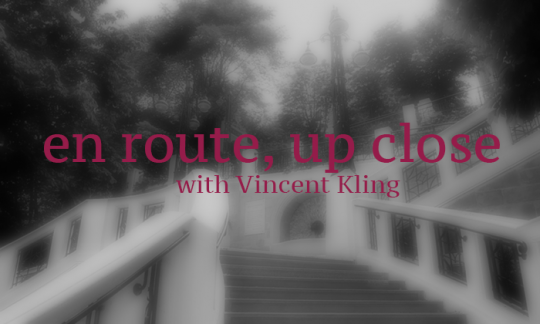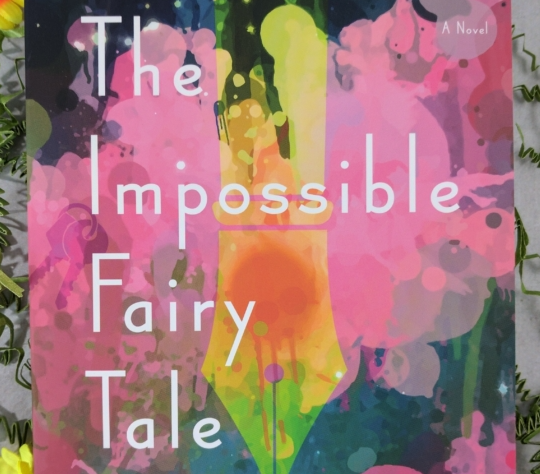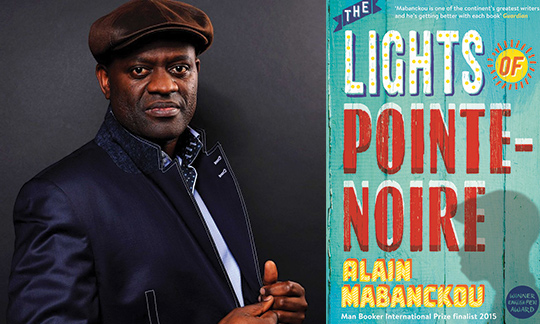Here is another installment of our long running Translator’s Diary by Vincent Kling, winner of the 2013
How many international airports have a distinct look or layout of their own? What upscale shopping street lacks a Gucci or a Prada store, a Cartier or Bulgari, no matter the city? It’s easy—and largely accurate—to deplore increasing sameness everywhere, including the false belief that everybody speaks English. Yet consumerism still hasn’t quite flattened everything. Take food, for example: American childhood is unthinkable without peanut butter, as much an emotional as a physical nourishment; most Europeans find it seriously disgusting. My Australian friends are crazy for Vegemite; elsewhere, the taste for it is baffling. Or sports: try even explaining baseball to Europeans, let alone inducing them to watch a game. Have any of Goodreads’ list of the 103 Best Baseball Novels of All Time been successful in translation? An American colleague taught a course in the baseball novel as a guest professor in Germany at the students’ request; the students dutifully acquired some technical knowledge of the rules, he told me, but they never began to grasp the emotional weight, the quality of ritual, the glory and the heartbreak, the sense of pastoral innocence.
Naturally, these cultural differences plague translators, who are sometimes confronted with the lack of a word for a thing because the thing itself doesn’t exist in their target language, at least not in any recognized form. The Wikipedia glossary of baseball terms would stagger the inventiveness of even a Georges Perec or a Harry Rowohlt. Never mind explaining the suicide squeeze—even finding a name for it would defeat most efforts.
Holiday customs might seem to present a lower barrier from country to country where Christmas is celebrated, but one of my colleagues from our workshop at Ledig House last June (see my earlier post) has found out differently. Yes, we all share sleigh bells and Christmas trees and mangers and a festive meal and some version of Saint Nicholas or Santa Claus bringing presents. In fact, Santa Claus is rapidly catching up with the Christ Child in the German-speaking world as the bringer of gifts. The process may have started in 1947, when, as a small sign of Germany’s alleged vulgarization through Americanization, Erich Kästner translated Clement Clark Moore’s “A Visit from Saint Nicholas” as “Als der Nikolaus kam,” complete with reindeer and all of Santa’s trappings, making no adaptation to German traditions.
Even with increasing overlap, however, Regina Rawlinson told our group at Ledig House about notable cultural differences when translating Jeanette Winterson’s delightful collection titled Christmas Days: 12 Stories and 12 Feasts for 12 Days. Think of the great overlap between English and American Christmas traditions: we Americans have holly, but not ivy, the latter familiar only from knowing the carol. Our fruitcake is a cousin, at least, of plum pudding. Many of our Christmas carols that are not German (“Silent Night”) are English. Yet how many of us Americans associate Christmas with robins, ubiquitous in English celebrations? We may have read about Christmas crackers, but we don’t have them here. Boxing Day is a concept, but not a practice in the United States.
Now, compound the unfamiliarity by transposing robins and crackers and holly and ivy and many other Christmas items and objects to the Continent, and you will be met with blankness. As if it weren’t enough of a challenge to find equivalents or explanations without resorting to footnotes—often the bane of translators—the stories in Winterson’s collection are interspersed with recipes for delicious British Christmas specialties mostly unknown on the Continent. Mince pies? You can find them in gourmet grocery stores, but you’d have to know what they are in the first place. Custard? No real equivalent. Sherry trifle? Practically no correspondence; tiramisu isn’t the same thing. Of course it’s a fairly mechanical operation to translate a recipe by changing ounces to grams and so on—Regina’s translation will surely yield just as yummy a mince pie—but how to explain all the associations, the nostalgia, the memories, the comfort of just-like-grandma-used-to-make? And from the other end, how could someone not from Central Europe experience the impact of tasting a Vanillekipferl, those crumbly crescent-shaped cookies with vanilla powdered sugar? Or Kletzenbrot, the dark country sweet bread with dried fruits and nuts is as powerful a stimulant as Proust’s madeleine. Recipes for all these are easy to download, but the cultural weight, the ethos and the pathos, the tropes of memory aren’t in the recipes. Good luck, Regina.
Similarly, single words often require glosses or paraphrases in Die Strudlhofstiege. More than one scene takes place in a Heuriger. If you go with your children, you can order them a Kracherl as a special treat. No Austrian or South German would ever have to be told what a Heuriger is, and to say it’s a semi-rustic inn on the outskirts of the city that serves wine grown from grapes on the property doesn’t begin to capture the flood of happy associations, images of cool air and arbors and relaxation. A Kracherl is a very sweet lemon- or raspberry-flavored carbonated soft drink, but until you’ve seen a kid’s face when one is served, you can’t know what it means to a delighted youngster. Several characters in the novel eat at their favorite Beisel, a kind of unpretentious, no-frills restaurant serving good, plain food that’s also a tavern but might be likened to an American diner (my Austrian friends find this comparison blasphemous).
A term for something unfamiliar cannot evoke its connotations, a feat that lies beyond the translator’s task; still, the simple terms themselves require explanation. But imagine a reader of Doderer’s novel having to consult three footnotes or endnotes. However conveniently placed, they slow the pace. One expedient is to embed clarification within the text; when Doctor Negria is planning to take Mary K. to a Heuriger, the single word suffices in the original, but I added an in-text explanation and referred to “one of those secluded little country taverns called Heurige.” Out near the Stangelers’ country house lives a miller who hobbles and can’t walk easily. For comic contrast, the narrator quotes the first line of a famous (though not all that famous) Schubert song cycle—but only the one line, knowing that any German-language reader would immediately make the connection, whereas only lovers of the Lied would probably recognize the source. That led me to another in-text expansion: “forget about Schubert’s Die schöne Müllerin and its first line, ‘Das Wandern ist des Müllers Lust’; ‘Roaming is the miller’s joy’!—because this miller walks all crooked; his left leg is shorter, so he hobbles.”
I haven’t yet found out how Regina proposes to transmit similar cultural information. Footnotes or endnotes are often considered preferable, since what I’m calling “in-text” expansions aren’t in-text at all. They could be judged as clumsy intrusions, in fact, efforts on the part of an ancillary person, the translator, to set himself equal to the author. Purism admittedly isn’t best served by this sort of hidden expansion, but purism itself could be in turn labeled fuddy-duddy timidity considering how much adaptability translation requires in practice. Translating has little in common with the meticulous art of establishing a definitive text, such as A. E. Housman did for Juvenal or Manilius. I haven’t yet seen actual fisticuffs in the debate over footnotes versus “in-text” expansions, but accusations of pedantry on one side (the “footnoters”) and brazen intrusion on the other (the “in-texters”) are always being traded. (Readers from the general public: did you know it could get this acrimonious?)
Familiar quotations from classic literature also require some context in English they never need in the original. One of Schiller’s most famous ballads, “Der Handschuh” (“The Glove”) tells the story of a knight treated so contemptuously by a lady that he rejects her sneering thanks for a deed of gallantry. Every German-speaking school child in Doderer’s time would have known the relevant line (“Den Dank, Dame, begehr’ ich nicht”) from memory with no context needed. The narrator of Strudlhofstiege puts that line to ironic use, aware that it could function as a quick, free-standing “zinger,” whereas I needed to set up a whole framework: “He could have quoted in reply that line from a ballad by Schiller, ‘Such thanks, fair one, I do not crave’ (‘Den Dank, Dame, begehr’ ich nicht’), but with the accent on the word ‘such,’ meaning ‘Don’t do me any favors.’” I’m not about to suggest that I “improved” the original, which would be preposterous, but I hope to have given enough surrounding information to make the passage intelligible. I sigh in agreement with Klaus Reichert, however, who says he’s always astonished at how much gets lost—odd that a loss results in this case from my adding.
The most formidable cultural challenges of all come from Doderer’s witty practice of using an idiom in its most literal meaning, extending it through whole paragraphs of character analysis. Picture taking English idioms about dogs—dog in the manger, raining cats and dogs, the Southernisms like “that dog won’t hunt” or “I be dog if . . . ”—and holding on to their literal meanings so that they have to be rendered as is in German, even if the language can’t accommodate them.
Next month, how “wo der Hund begraben ist” and “Sie kommen mir spanisch vor” kept me awake at night.
*****
Read More Columns by Vincent Kling:





